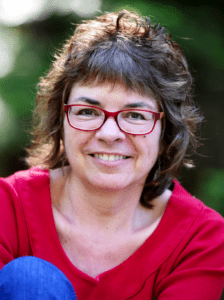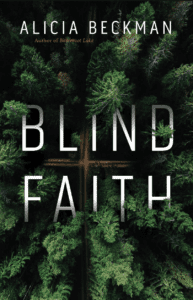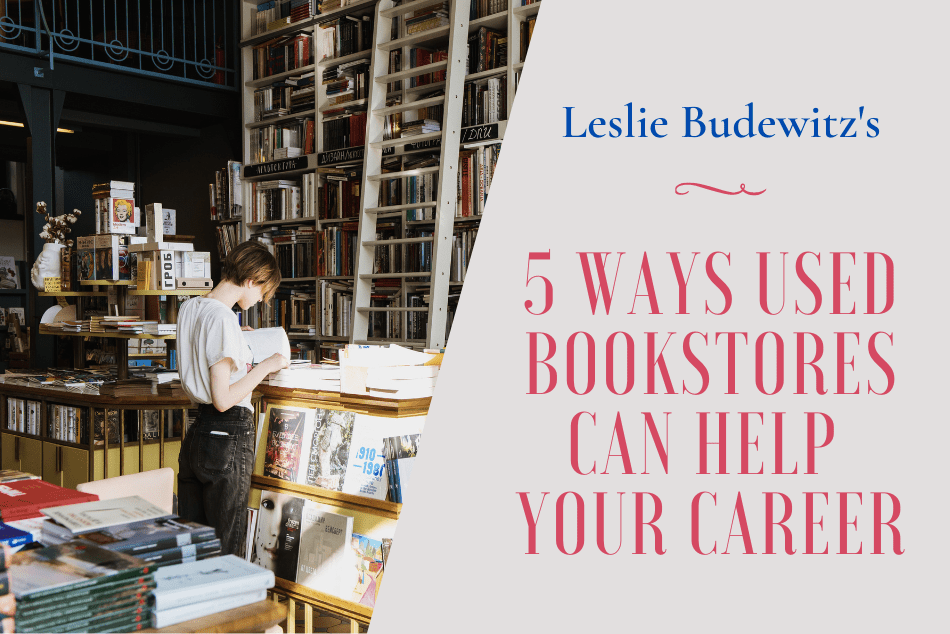In the US, authors are paid royalties on a book only when it’s sold new. As a result, used book sales can create a dilemma for authors: happy as we are to have our books discovered, we also need to be paid. Can we make peace with used book sales – and turn them and used book dealers to our advantage? I think so.
Used bookstores are thriving. Supply lines are open—picture those boxes packed up during the pandemic when readers had time to organize their shelves, empty nesters cleaning out the basement, boomers downsizing. Readers feeling pinched by inflation are stretching their book budgets by shopping used. Used bookstores are part of the bookselling ecosphere. Consider these five ways to make them your partners in crime.
1. Used Book Sealers Are Mad Hand-Sellers. They and Their Customers Want to Know You
Books are more than a business to most used book dealers. These people love books. They know their inventory, often without the benefit of a computerized system. They know their customers’ interests. At the last Christmas Art Walk, I witnessed a shop owner light up at the names of long-out-of-print titles and talk about them like old friends, walk a customer to a cult classic on a shelf, and offer to place orders for books he didn’t have.
While some used bookshops are a bit musty, the best are energizing places. Readers come there for books they can’t find elsewhere—and they may find yours in the process. And when the owner tells a customer she’s met the author, sales potential and general joy increase.
See your books on the shelves? Offer to sign them. (Heaven forbid you find a copy you signed for someone you know. Just slip it back on the shelf with nary a word.)
Even the most ardent used book fan will splurge now and then. Like library patrons, they’ll invest in a new book by an author whose work they love rather than wait it out or hunt it down. Used book sales can be a gateway to future new book sales. And if a customer wants to give your books as a gift, she’s likely to choose new.
True story: A reader named Terry found a copy of Crime Rib, my second Food Lovers’ Village mystery, in a used bookstore in Missoula, Montana. Only when she got home did she discover it was signed—to another reader named Terry. She was so thrilled that when she saw I was speaking at a new-book bookstore in town, she brought it in to show me—and bought the next book new, on the spot.
2. Many Used Book Dealers Also Sell New Books
In vast swaths of the country, independent and chain bookstores are as rare as serial commas in newspapers. But in small towns and rural communities, it’s common to see a used bookstore tucked in a corner building on Main Street. Keenly aware that they run the only bookstore in the county—or here in Montana, several counties—most also carry new books by local authors and books of local interest. If you live nearby, or you write novels or nonfiction set in the region, odds are they’ll be interested. Your books matter to those businesses and their customers.
Some maintain an account with a distributor. Others may need to consign books from you. Don’t be afraid to work out mutually beneficial terms.
I’ve even heard tell of new owners shifting the focus of their used bookstores—and if your books sell, they’ll keep or expand the stock.
3. Let Them Help You Grow An Audience
Send them a press release for your next book, so they can talk you up. Drop off bookmarks. Include them in the “where to buy” list on your website. If they regularly carry your books new, share a link.
Got a spare poster? Some shops are pretty barebones. Even if the bookseller uses your outdated poster to cover a crack in the plaster, it’s another opportunity to flash your title at readers’ eyeballs. And you cut down the clutter in your own office.
My nearest writing group, the Authors of the Flathead, hosts an annual conference at a community college. When the college bookstore no longer had staff to sell members’ books at the event, the local new & used bookstore agreed to host a reception after the Saturday sessions. Wine, cheese, book talk and book sales—what could be better?
4. Help Yourself While Helping Them
Occasionally, you’ll need to sell your own books, say at a small-town library talk or a PEO fundraiser. If your local used bookstore has a distribution account, order your resale copies through them. They’ll match or beat your publisher’s discount, and the sales will earn you royalties.
An unexpected bonus: Your resale purchases may help them keep their distributor or publisher account, and reach a better discount tier.
5. Shop, When You Can
Like many authors, I rarely buy a used copy if a book is still in print. But you can’t always get what you want. Your local bookseller may have the out-of-print research books you need—or a channel for tracking down obscure titles beyond Amazon and ABE. Ask them to hunt and gather hard-to-find titles and suggest ones you hadn’t yet spotted.
A final tip: A used book customer is not typically choosing between the same book used or new. That means the used book purchase is not necessarily a royalty lost; it’s a reader gained. Reader + Loyalty creates a different kind of payback. And if authors show ourselves willing to acknowledge the used book dealer and reader as part of the book-loving community, we can all benefit.
More suggestions? Let’s talk on Facebook.
 About the Author: Leslie Budewitz blends her passion for food, great mysteries, and the Northwest in two cozy mystery series, the Spice Shop mysteries set in Seattle’s Pike Place Market, and the Food Lovers’ Village mysteries, set in NW Montana. The latest: Peppermint Barked, the 6th Spice Shop mystery (July 2022). As Alicia Beckman, she writes moody suspense. In Blind Faith (2022), two women whose paths crossed in Montana decades ago discover they hold the keys to a secret that could
About the Author: Leslie Budewitz blends her passion for food, great mysteries, and the Northwest in two cozy mystery series, the Spice Shop mysteries set in Seattle’s Pike Place Market, and the Food Lovers’ Village mysteries, set in NW Montana. The latest: Peppermint Barked, the 6th Spice Shop mystery (July 2022). As Alicia Beckman, she writes moody suspense. In Blind Faith (2022), two women whose paths crossed in Montana decades ago discover they hold the keys to a secret that could expose a long-hidden killer—and change everything they thought they knew about themselves.
expose a long-hidden killer—and change everything they thought they knew about themselves.
A three-time Agatha-Award winner (2011, Best Nonfiction; 2013, Best First Novel; 2018, Best Short Story), Leslie is a past president of Sisters in Crime and a board member of Mystery Writers of America. She lives in northwest Montana.
Links:
www.Facebook.com/LeslieBudewitzAuthor





